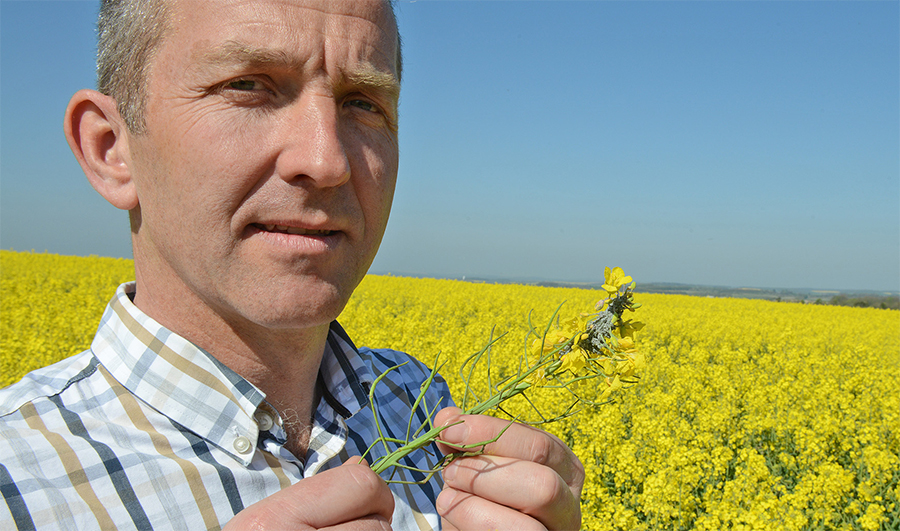
Oilseed rape growers and agronomists should be vigilant for rapidly increasing colonies of Mealy Cabbage Aphid. Aided by the recent spell of hot, dry weather, aphid numbers have built up extremely quickly, and could now severely damage pod bearing raceme.
Inspecting crops in southern England last week, Syngenta Technical Manager, Simon Roberts, identified early infestations on up to 10% of plants in patches of some fields, with larger colonies already developed to the point of causing damaging deformation of the stems.
“Growers should initially be on the lookout for the main raceme turning a purple colour and bending over, which is characteristic of early aphid infestation. Closer inspection is likely to reveal a few aphids active on the stem,” he advised. “Once the numbers build up, which could be over the course of just a few days, the growth becomes twisted and deformed that can limit pod development.”
Simon warned one of the key control issues with Mealy Cabbage Aphid is the pests’ waxy-scaly skin, which makes targeting tightly packed colonies with sprays extremely difficult. “Although there is no known resistance, results with contact pyrethroids can be disappointing.
“Far better control will be achieved with Aphox, where the additional fumigant activity can deliver excellent results at low cost. Rates of 420g/ha is advised for Mealy Cabbage Aphid. For practicality, treatments are typically going to be in conjunction with Sclerotinia sprays.”
Crop walking had also seen evidence of seed weevil activity, which has been relatively early this season. Depending on how numbers continue to build-up over the coming weeks, agronomists would need to consider a Hallmark Zeon application with a final Amistar fungicide treatment, he advised.
